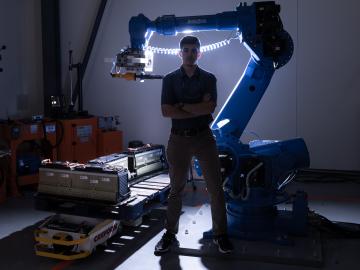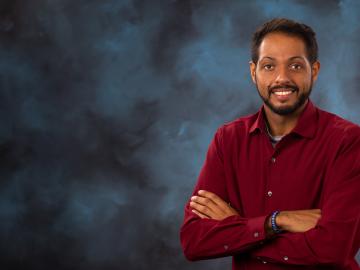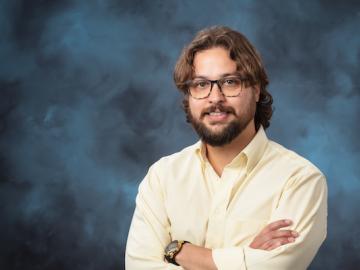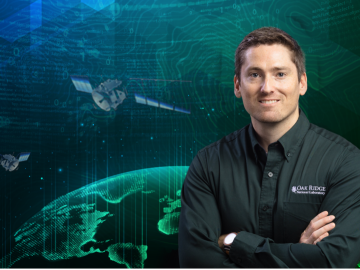
Filter News
Area of Research
News Type
News Topics
- (-) 3-D Printing/Advanced Manufacturing (13)
- (-) Grid (7)
- (-) National Security (17)
- Advanced Reactors (2)
- Artificial Intelligence (9)
- Big Data (12)
- Bioenergy (23)
- Biology (27)
- Biomedical (13)
- Biotechnology (7)
- Buildings (10)
- Chemical Sciences (9)
- Clean Water (7)
- Composites (3)
- Computer Science (14)
- Coronavirus (6)
- Critical Materials (2)
- Cybersecurity (6)
- Energy Storage (13)
- Environment (40)
- Exascale Computing (3)
- Frontier (3)
- Fusion (9)
- High-Performance Computing (11)
- Hydropower (2)
- Isotopes (13)
- ITER (1)
- Machine Learning (10)
- Materials (9)
- Materials Science (15)
- Mathematics (5)
- Mercury (4)
- Microscopy (11)
- Nanotechnology (6)
- Neutron Science (10)
- Nuclear Energy (16)
- Partnerships (2)
- Physics (16)
- Polymers (5)
- Quantum Computing (1)
- Quantum Science (5)
- Security (7)
- Simulation (8)
- Summit (2)
- Transportation (12)
Media Contacts

Carl Dukes’ career as an adept communicator got off to a slow start: He was about 5 years old when he spoke for the first time. “I’ve been making up for lost time ever since,” joked Dukes, a technical professional at the Department of Energy’s Oak Ridge National Laboratory.

Mike Huettel is a cyber technical professional. He also recently completed the 6-month Cyber Warfare Technician course for the United States Army, where he learned technical and tactical proficiency leadership in operations throughout the cyber domain.

After being stabilized in an ambulance as he struggled to breathe, Jonathan Harter hit a low point. It was 2020, he was very sick with COVID-19, and his job as a lab technician at ORNL was ending along with his research funding.

Stephen Dahunsi’s desire to see more countries safely deploy nuclear energy is personal. Growing up in Nigeria, he routinely witnessed prolonged electricity blackouts as a result of unreliable energy supplies. It’s a problem he hopes future generations won’t have to experience.

Ben Thomas recalled the moment he, as a co-op student at ORNL, fell in love with computer programming. “It was like magic.” Almost five decades later, he strives to bring the same feeling to students through education and experience in fields that could benefit nuclear nonproliferation.

Having lived on three continents spanning the world’s four hemispheres, Philipe Ambrozio Dias understands the difficulties of moving to a new place.

In human security research, Thomaz Carvalhaes says, there are typically two perspectives: technocentric and human centric. Rather than pick just one for his work, Carvalhaes uses data from both perspectives to understand how technology impacts the lives of people.

Though Scott Stewart recently received an Early Career Award from the Institute of Nuclear Material Management, he is regarded as a seasoned professional in the nuclear field with over 10 years of experience.

When Matt McCarthy saw an opportunity for a young career scientist to influence public policy, he eagerly raised his hand.

Cameras see the world differently than humans. Resolution, equipment, lighting, distance and atmospheric conditions can impact how a person interprets objects on a photo.


